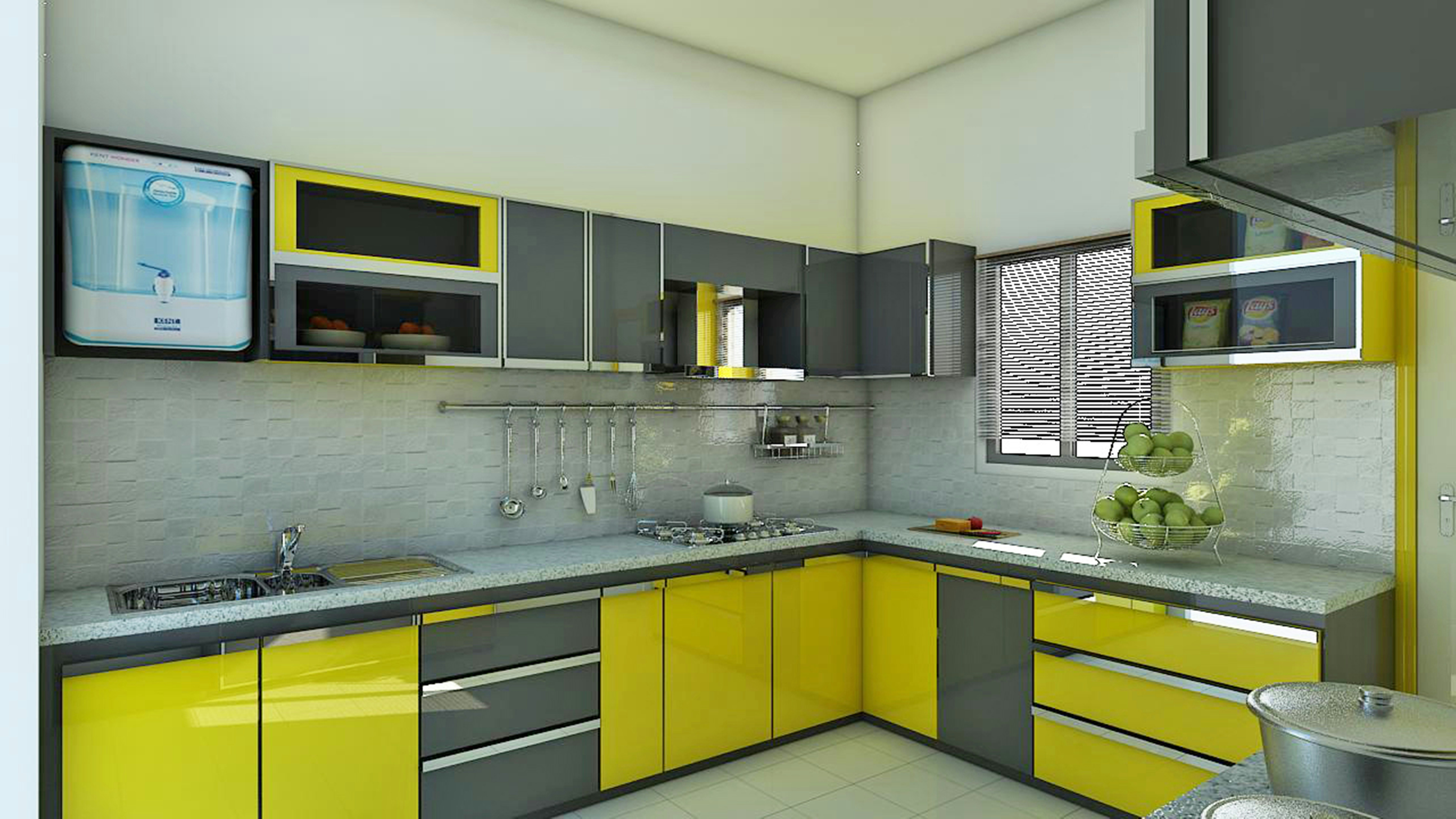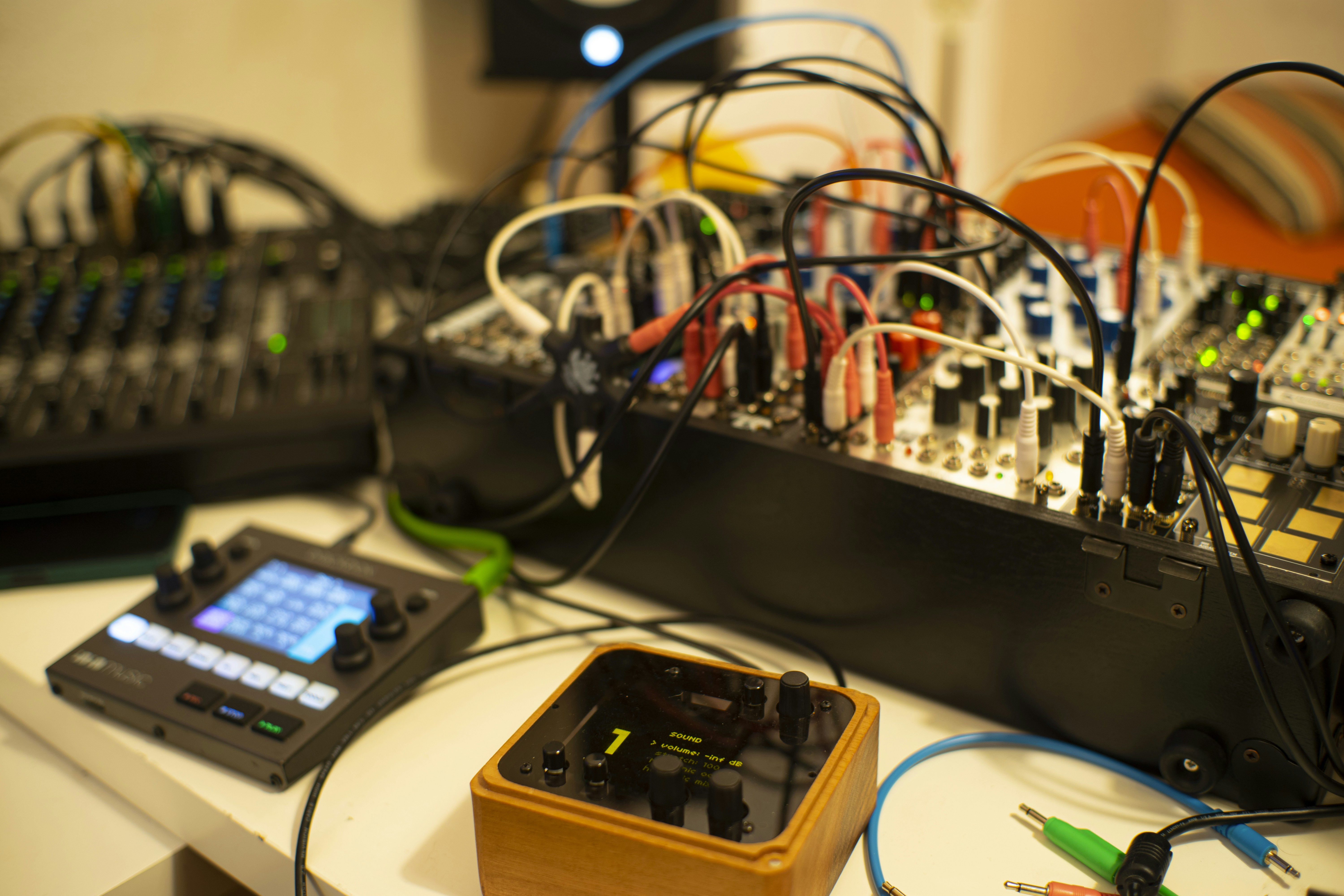Exploring the Future of Modular Electronics
Are you ready to embark on a journey into the fascinating world of modular electronics? Get ready to witness the transformation of technological possibilities as we delve into the future of this innovative field. In this article, we will explore the exciting advancements and potential applications of modular electronics, where each component seamlessly connects and collaborates to create a harmonious and customizable experience. Get ready to be captivated by the limitless potential and possibilities that await us in the world of modular electronics. The future is here, and it’s modular!
Table of Contents
ToggleBenefits of Modular Electronics
Increased flexibility
One of the key benefits of modular electronics is the increased flexibility it offers. With modular systems, you have the ability to easily swap out individual components or modules as needed, allowing you to customize your electronic devices to suit your specific needs and preferences. This flexibility is particularly advantageous when it comes to upgrading or expanding your devices, as you can simply replace or add modules without having to invest in an entirely new system.
Cost savings
Modular electronics also offer cost savings compared to traditional electronic devices. With modular systems, you only need to replace or upgrade the specific modules that are necessary, rather than buying a completely new device. This can significantly reduce the overall cost of ownership, especially for complex and expensive devices such as smartphones or computers. Additionally, the ability to reuse modules in different devices further enhances cost savings and efficiency.
Faster and easier upgrades
Gone are the days when you had to wait for years to upgrade your electronic devices. With modular electronics, upgrading becomes a breeze. Instead of buying a whole new device, you can simply replace the outdated modules with the latest ones, instantly giving your device a performance boost. This not only saves you time and effort, but it also ensures that your devices are always up to date with the latest technology.
Challenges and Limitations
Standardization and compatibility issues
While modular electronics offer numerous benefits, there are also challenges and limitations associated with this technology. One of the main challenges is standardization and compatibility. With a wide range of different module formats and specifications available in the market, ensuring compatibility between modules from different manufacturers can be a daunting task. In order to fully capitalize on the benefits of modular electronics, there needs to be a greater focus on standardization and interoperability.
Limited availability of modules
Another limitation of modular electronics is the limited availability of modules. Compared to traditional electronic devices, modular systems often have a smaller ecosystem of compatible modules to choose from. This can be a hindrance for users who have specific requirements or niche applications. However, as the popularity of modular electronics continues to grow, the availability and variety of modules is expected to increase, providing users with a wider range of options.
Learning curve for users
Modular electronics, although innovative and exciting, can also present a learning curve for users who are accustomed to traditional electronic devices. Understanding how different modules interact, how to properly install and configure modules, and troubleshooting any potential issues can require some technical knowledge and expertise. Therefore, it is important for manufacturers to provide user-friendly interfaces and educational resources to help users navigate the world of modular electronics.
Applications in Various Industries
Consumer electronics
In the consumer electronics industry, modular electronics offer unprecedented opportunities for customization and personalization. Consumers can select modules that cater to their specific needs and preferences, such as choosing a high-quality camera module for photography enthusiasts or a gaming module for avid gamers. Additionally, the ability to easily upgrade or replace modules allows consumers to future-proof their devices and stay up to date with the latest advancements in technology.
Automotive industry
Modular electronics have also gained traction in the automotive industry. From infotainment systems and navigation modules to advanced driver assistance systems, modular electronics enable automakers to easily integrate and upgrade various functionalities within vehicles. This not only enhances the driving experience for consumers but also streamlines production processes and reduces costs for manufacturers.
Healthcare sector
The healthcare sector is another industry that can greatly benefit from modular electronics. From wearable health monitoring devices to medical imaging equipment, modular electronics allow for the customization and scalability required in medical applications. Healthcare professionals can easily swap out or add modules to adapt devices to specific patient needs or to meet evolving healthcare standards and regulations.
Current and Emerging Technologies
Printed circuit board (PCB) modules
Printed circuit board (PCB) modules are one of the foundational technologies in modular electronics. These modules consist of interconnected electronic components mounted on a rigid board, allowing for easy assembly and integration into larger electronic devices. PCB modules offer a high degree of reliability and performance, making them widely used in a variety of applications, from smartphones and computers to industrial machinery.
3D printing of electronic components
Advances in 3D printing technology have opened up new possibilities in modular electronics. With 3D printing, it is now possible to manufacture complex and customized electronic components on-demand. This not only reduces production costs but also enables rapid prototyping and iteration. 3D printing of electronic components has the potential to revolutionize the manufacturing process and further enhance the modularity and versatility of electronic devices.
Flexible and stretchable electronics
Flexible and stretchable electronics represent a promising frontier in modular electronics. These technologies enable the development of electronic components and circuits that can conform to irregular shapes, stretch, and bend without compromising functionality. Flexible and stretchable electronics have a wide range of applications, from flexible displays and wearable devices to electronic textiles and medical implants. The inherent modularity of these technologies allows for seamless integration into various form factors and opens up new possibilities for design and innovation.
Sustainable and Eco-friendly Design
Reduced electronic waste
Modular electronics have the potential to significantly reduce electronic waste. Rather than discarding an entire electronic device when a component becomes obsolete or fails, modular systems allow for the targeted replacement of individual modules. This not only extends the lifespan of electronic devices but also reduces the amount of electronic waste that ends up in landfills.
Lower carbon footprint
By promoting the reuse and upgrade of individual components, modular electronics can also contribute to a lower carbon footprint. Manufacturing new electronic devices requires significant amounts of energy and resources. By extending the lifespan of electronic devices through modular design, the need for new production is reduced, resulting in a reduced environmental impact.
Circular economy approach
Modular electronics align with the principles of a circular economy, where resources are kept in use for as long as possible, and waste is minimized. By enabling the repair, upgrade, and reuse of electronic devices, modular design promotes a more sustainable approach to consumer electronics. This shift towards a circular economy can have far-reaching positive effects on the environment and the economy as a whole.
Smartphones and Wearable Devices
Modular smartphones
Modular smartphones represent the epitome of flexibility and customization. With a modular smartphone, you can easily upgrade the camera module for better photography, swap out the battery for increased capacity, or enhance the storage capacity by adding a module. This modular approach eliminates the need to buy a new smartphone every year, reducing electronic waste and saving you money in the long run.
Customizable smartwatches
Smartwatches are also benefiting from modular design. With customizable smartwatches, you can choose the specific sensors and features that are most relevant to your lifestyle. Whether you are a fitness enthusiast who wants a heart rate monitor or a professional who needs a built-in GPS, modular smartwatches allow you to tailor the device to your individual needs.
Integration of sensors and modules
Modular electronics are driving the integration of sensors and modules into our everyday devices. From fingerprint scanners to face recognition modules, these technologies enhance the functionality and capabilities of smartphones and wearable devices. The modular nature of these devices allows for easy integration of new sensors and modules as they become available, further expanding the possibilities of these devices.
Internet of Things (IoT) and Smart Homes
Modular IoT devices
The Internet of Things (IoT) is revolutionizing how we interact with our surroundings. Modular IoT devices offer a scalable and adaptable approach to building smart systems. With modular design, you can easily add or remove sensors, actuators, and communication modules to create customized IoT solutions tailored to specific needs. This flexibility enables the deployment of IoT systems in a wide range of applications, from smart homes and cities to industrial automation.
Expansion of smart home capabilities
Modular electronics are also driving the expansion of smart home capabilities. With modular smart home devices, you can start with a basic system and easily add new modules to enhance functionality over time. From smart lighting and home security to energy management and entertainment systems, modular smart home devices provide endless possibilities for creating a personalized and interconnected living environment.
Interoperability of modular devices
Interoperability is a key advantage of modular electronics in the context of IoT and smart homes. With standardized interfaces and protocols, modular devices from different manufacturers can seamlessly communicate and work together. This allows for greater flexibility and choice when selecting smart home devices, as users are not locked into a single ecosystem or brand.
Education and DIY Electronics
Hands-on learning with modular electronics
Modular electronics provide a hands-on learning experience for students and electronics enthusiasts. By working with individual modules, users can gain a deeper understanding of the underlying principles of electronics and develop practical skills in circuit design, assembly, and troubleshooting. This hands-on approach promotes creativity and innovation and prepares individuals for future careers in the electronics industry.
Makerspaces and DIY projects
The rise of makerspaces and DIY projects has been fueled, in part, by the availability of modular electronics. Makerspaces are collaborative workspaces that provide access to tools, resources, and expertise for individuals interested in creating and experimenting with electronics projects. With modular electronics, makers can easily integrate and customize various components to bring their ideas to life, fostering a culture of creativity and innovation.
Skills development in electronics
Modular electronics offer an excellent platform for skills development in electronics. As users explore and experiment with different modules, they are exposed to various electronic components and technologies. This hands-on experience not only enhances technical skills but also fosters problem-solving, critical thinking, and adaptability. These skills are highly valuable in today’s rapidly changing technological landscape.
Future Trends and Possibilities
Increased modularity and flexibility
Looking into the future, modular electronics are expected to become even more modular and flexible. Advances in manufacturing techniques, such as 3D printing of electronic components, are likely to enable the creation of increasingly customized and personalized devices. This increased modularity will empower users to create unique solutions tailored to their specific needs, further blurring the line between consumers and producers.
Modular robotics and AI integration
Modular electronics have the potential to revolutionize the field of robotics. By combining modular electronics with robotics, developers can create customizable robots that can be easily reconfigured for different tasks and applications. Furthermore, the integration of artificial intelligence (AI) with modular robotics holds immense promise, as it allows for adaptive and intelligent behaviors that can be easily customized and scaled for various contexts.
Wireless and wireless charging modules
The advent of wireless technologies is extending to modular electronics as well. Wireless modules, such as Wi-Fi and Bluetooth, enable seamless connectivity and communication between different modules without the need for physical connections. Additionally, wireless charging modules remove the need for cumbersome cables, making charging more convenient and eliminating the risk of cable-related issues. These wireless capabilities further enhance the modularity and user experience of electronic devices.
Implications for Product Development
Rapid prototyping and iteration
The modular nature of electronics enables rapid prototyping and iteration during the product development process. With modular components, designers and engineers can quickly assemble and test different configurations, speeding up the time to market. This iterative approach also allows for more flexibility in responding to user feedback and incorporating new features or improvements.
User-driven customization
Modular electronics empower users to become active participants in the design and customization of their devices. Instead of being limited to off-the-shelf products, users can select and combine modules to create a device that perfectly matches their needs and preferences. This user-driven customization not only enhances user satisfaction but also fuels innovation and promotes a closer relationship between consumers and manufacturers.
Reduced time to market
By leveraging modular electronics, manufacturers can significantly reduce the time to market for their products. The ability to reuse and integrate existing modules into new designs streamlines the product development process, eliminating the need to develop and test every component from scratch. This shorter time to market allows manufacturers to stay ahead of the competition and respond quickly to changing market demands.
In conclusion, modular electronics offer a wide range of benefits and possibilities in various industries, ranging from consumer electronics to healthcare and beyond. The increased flexibility, cost savings, and faster upgrades provided by modular systems are revolutionizing the way we interact with electronic devices. While there are challenges and limitations to overcome, such as standardization and compatibility issues, the future of modular electronics is promising. With advancements in technology and manufacturing techniques, we can expect to see even more modular and customizable devices, as well as increased integration with emerging technologies like robotics and AI. As we move forward, modular electronics will continue to shape the way we design, use, and interact with electronic devices, leading to a more sustainable, customizable, and user-centric future.
Exploring the future of modular electronics: Join us as we delve into the exciting advancements, potential applications, and challenges of this innovative field. Discover the benefits of flexibility, cost savings, and faster upgrades, as well as the limitations of standardization and module availability. Learn about the applications in various industries, current and emerging technologies, and the sustainable design of modular electronics. Explore the impact on smartphones, wearable devices, IoT, smart homes, education, and DIY projects. Uncover future trends and possibilities for increased modularity, modular robotics, AI integration, and wireless capabilities. Join us in shaping the future of product development.
Exploring the future of modular electronics: Join us as we delve into the exciting advancements, potential applications, and challenges of this innovative field. Discover the benefits of flexibility, cost savings, and faster upgrades, as well as the limitations of standardization and module availability. Learn about the applications in various industries, current and emerging technologies, and the sustainable design of modular electronics. Explore the impact on smartphones, wearable devices, IoT, smart homes, education, and DIY projects. Uncover future trends and possibilities for increased modularity, modular robotics, AI integration, and wireless capabilities. Join us in shaping the future of product development.


